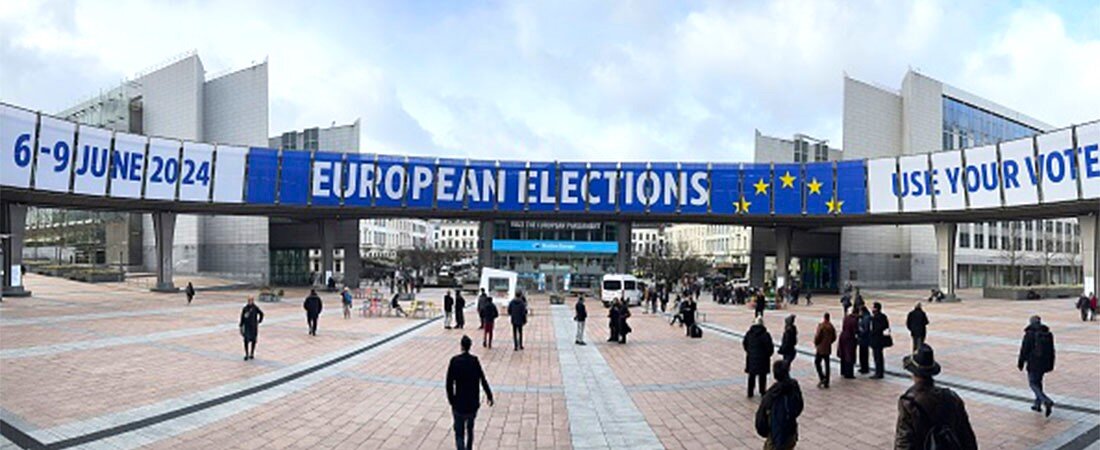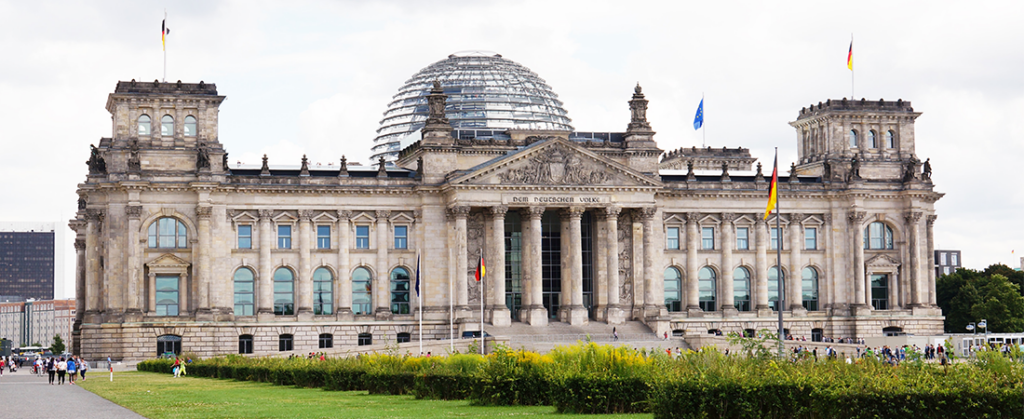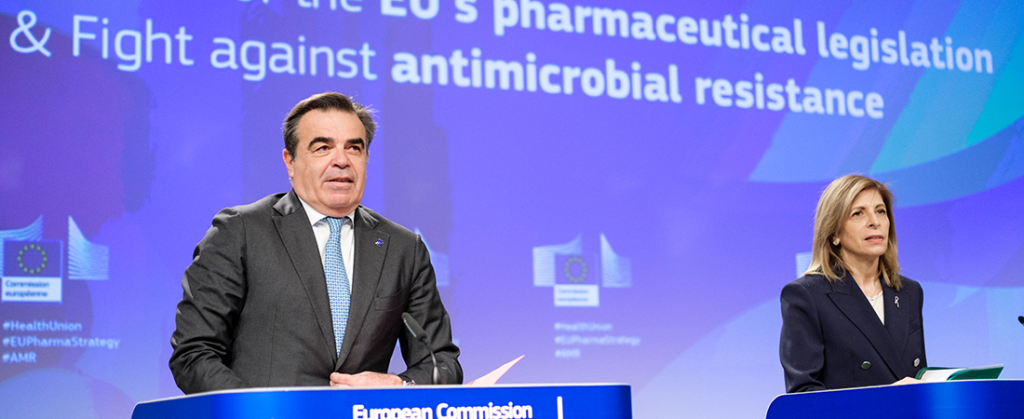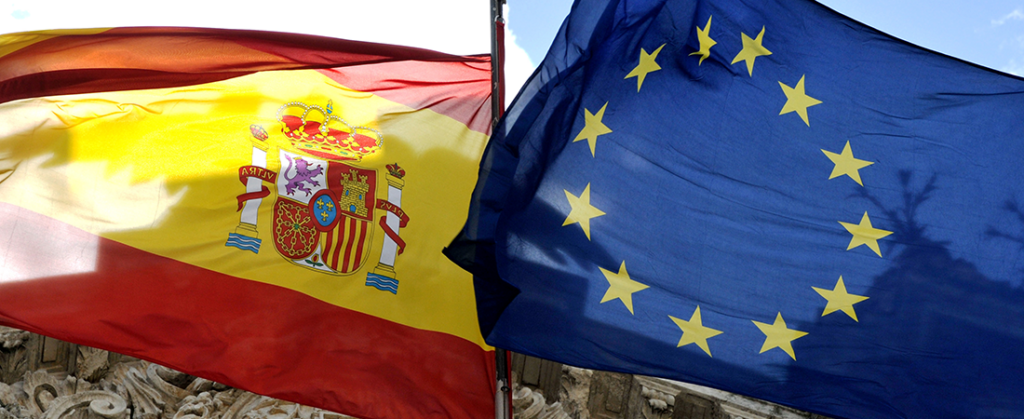The overall picture: a swing to the right
A wave of dis-satisfaction is sweeping across the European continent – with one major exception among the countries we polled – which looks set to empower the populist far right in this year’s European Parliament elections.
Citizens across Europe are profoundly unhappy about issues such as the cost of living, with inflation still hitting the continent, and immigration, the unresolved problem of the bloc.
They are planning to punish the parties of the centre, centre-right and centre-left – and prioritise national issues over European ones.
The poll found surging rating for right-populist parties in Germany, France, Italy and the Netherlands.
- In the Netherlands, Geert Wilders right-populist Party for Freedom is forecast to hit 25% – up from just 3.5% in the 2019 European elections and matching his shock result in the 2023 Dutch general election.
- In Italy, Giorgia Meloni’s Brothers of Italy is forecast to get 28% of the vote – increasing its share from the 26% it received in the 2022 Italian general election. Interestingly, Forza Italia (10%) was seen as surpassing Lega (7%) for the first time in months, positioning itself as a more moderate force as opposed to Matteo Salvini’s declining influence. However, despite the support for the government, 54% saw the country to be on the wrong path.
- In Germany, the far-right AfD is forecast to receive 17% of the vote, cementing its position as a potentially decisive actor in German politics and a near-doubling of its score in the 2019 European Parliament election in Germany.
- In a poll taken as France was beset by farmers’ protests, the far-right National Rally is on course to get 33% – more than double the 14% forecast for President Emmanuel Macron’s Ensemble movement.
- Only in Poland, where the nationalist right has recently been defeated in a national election, does the poll show the centre holding its ground – with Donald Tusk’s centrist coalition on course to increase its share of the vote the 30% it got in the 2023 general election there to 35% in this year’s European elections.
Added together the picture the survey paints – with data from five of Europe’s key nations – a picture of an unhappy continent, with voters determined to punish unpopular politicians and European institutions struggling to reflect citizens’ concerns.
The issues driving EU voters
In every country surveyed, much higher numbers said they would base their vote on issues to do with things happening in their country, rather than on issues which are to do with the European Union. The average across the five countries was 48%, ranging from 53% in France to 45% in Poland. In no country did the percentage saying they would vote mainly or wholly on EU issues go above 15%.
In a further worrying sign for European centrists, the two countries with established centre-right or centre left governments – France and Germany – gave the lowest figures when asked if their country was on the right path. Just 14% agreed in France and 20% in Germany. There were much high ratings in Poland (41%) with its newly-elected centrist government and in Italy (28%) and the Netherlands (24%) with a right-populist government and government-elect respectively.
The highest figure for “wrong path” was France with 68%.
Only in Poland were people more convinced that the EU is on the right path compared to wrong path – with 42% versus 36%, explaining the country’s recent shift to a more pro-European government.
The most negative country about the EU was France with a wrong/right percentages of 59% versus 17%. Germany was the second most negative with a wrong/right score of 27% versus 48%.
In every country bar the Netherlands, the most important issue facing their country was seen as the cost of living and inflation. In the Netherlands, it was a linked issue – housing. Second place in every country bar Poland and Italy was immigration.
Immigration also ranked second only to the cost of living when people in the five countries were asked to identify the top three issues that EU decision-makers should prioritise their time talking about. It was the top issue in the Netherlands and Italy. Across all five countries it was chosen by 35% as an issue the EU should prioritise, compared to 36% who chose inflation and the cost of living.
Only in Poland did a different issue come in the top two, with the war in Ukraine seen as the most important issue at 38%. In Italy, the conflict only ranked fifth at 20%.
As regards healthcare, for Italy it was marked as a key issue by 40% of the respondents, which can be explained by the long post-Covid waiting lists.
But across Europe there was also a demand from a large part of the electorate for the EU to have less impact on peoples’ lives. In no country other than Italy did more people want it to have an increased amount of influence. This could explain the right-wing government limiting its combative attitude towards the EU’s institutions and leaders, and taking on a more constructive approach.
The Netherlands was the country which most wanted a decreased level of interest, with 40% wanting less influence and only 21% wanting more. But in no country was there a majority wanting less influence. in a sign that UK-style secessionism is still not a strong force in any of the EU nations that were polled.
Remarkably, climate change ranked as a lower priority for EU voters – often featuring in the top five issues but not the top three.
Your Portland European Elections team will bring you the latest intel and insights during this pivotal year for Brussels and beyond. Reach out to us here to get in touch or to subscribe to our nEU weekly wire – [email protected]





